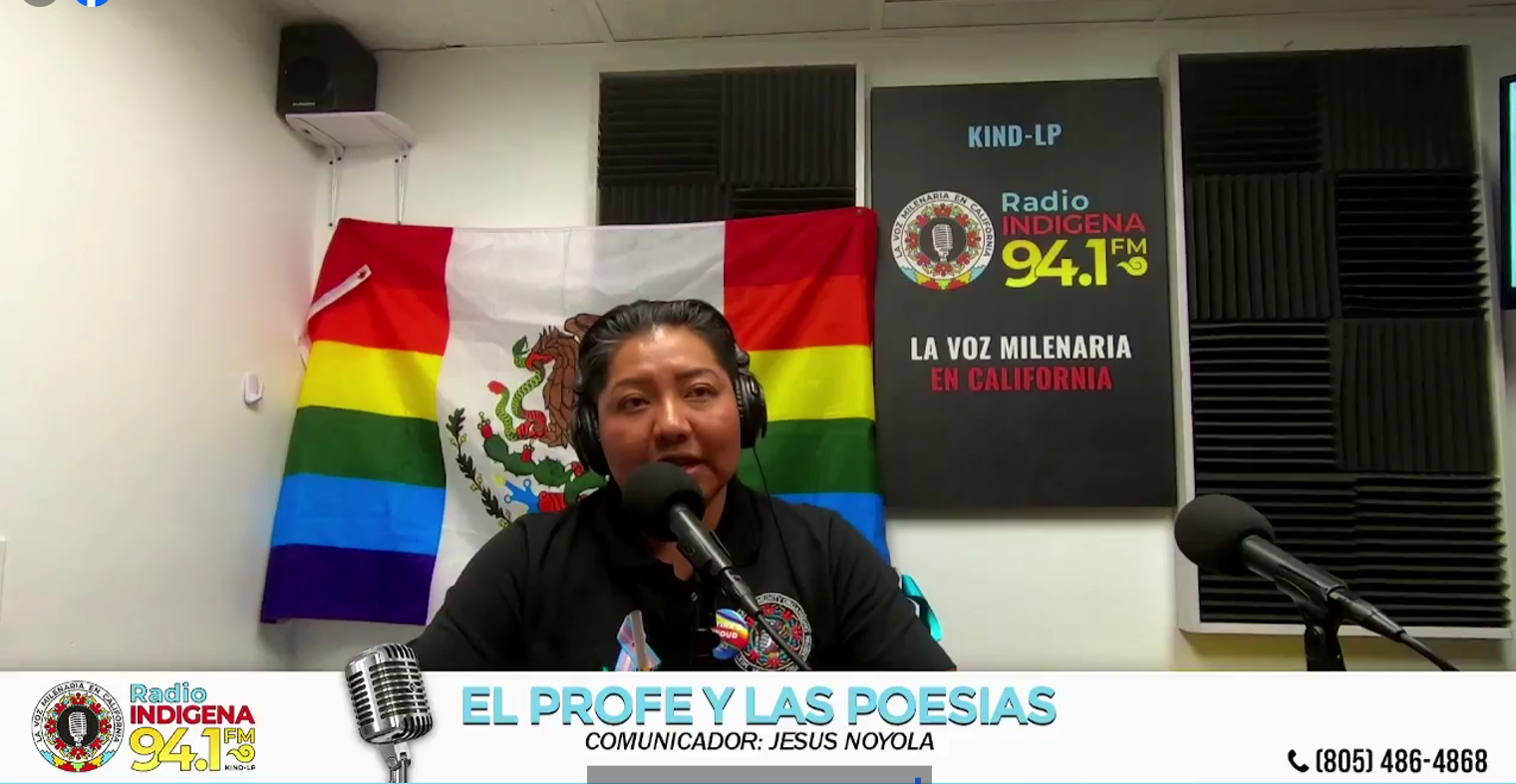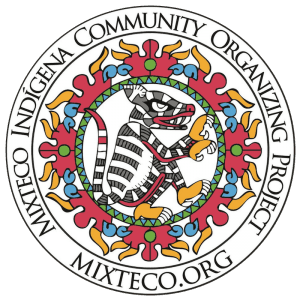How Radio Indigena is doing its part during Pride Month

By: Miguel Hernandez
(Listen to our audio in Spanish and Mixteco, Guadalupe Nundaca variant, 6 min)
In the wake of Pride Month, one of MICOP’s leaders, Rio Lorenzo, took the stage in one of Radio Indigena’s most recognized shows, “El Profe y Las Poesias” to talk about the complexities of being Indigenous and being queer. The reflective and philosophic show began with Lorenzo explaining her own experience as a non-binary individual and explaining how negative connotations exist with simply being friends with someone from the LGBTQ community. Nonetheless, Lorenzo opts for the liberation of the LGBTQ community and for their right to have a family.
A major point reflected in the conversation between the renowned afro-indigenous poet Jesus Noyola and the director of Micop’s wellness program, Rio Lorenzo, is how children are often forced into gender binaries from a very young age. These binaries have bigger connotations that correlate women with softer personalities and males with more dominant ones.
Interestingly, Lorenzo shared how she has fought back against these oppressive gender binaries through the way she has decided to educate her own son. Lorenzo mentions that when it comes to her son, she creates a space where he can express himself freely according to his personality and does not limit the activities or toys he chooses because of his gender.
In this conversation between Noyola and Lorenzo, the topic of suicide rates amongst the LGBTQ community took a very emotional turn. Noyola shared an instance of how, in his pueblo in Mexico, he witnessed a lot of violence directed towards youth who were part of the LGBTQ community directed to them by their own families.
This stigma of being queer among youth has been correlated with the high suicide rates. The Trevor Project reports how LGBTQ young people are “more than four times as likely to attempt suicide than their peers.”
The Trevor Project further estimates how there are more than “1.8 million LGBTQ youth between the ages of 13-24 who seriously consider suicide each year in the U.S. – and at least one attempts suicide every 45 seconds.”
Interestingly, when it comes to the conversation of homosexuality or third genders within the Indigenous community, Muxes are a widespread topic. En Juchitan Oaxaca, there are more than 160,000 inhabitants, and there are 10 to 15 muxes living in each block.
Muxes come from the Zapotec community and are labeled neither male nor female; rather, they embrace a Zapotec gender hybridity. In this community, muxes were reported to be traditionally seen as a blessing from the gods and today remain an integral part of society.
So when the question was asked to a member of the Mixteco community about why there exists a certain homophobia within Indigenous communities in modern times? He responded by saying that there is a lot of toxic masculinity within the Indigenous community, and the media reinforces it all.
